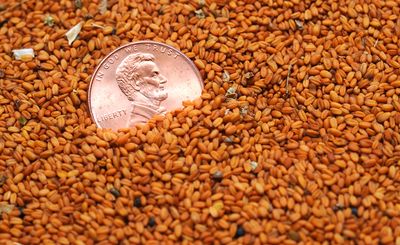Farmers pass on camelina crop test program

A federal program to boost camelina crops in Eastern Washington failed to attract any takers.
The U.S. Department of Agriculture invited farmers to sign up for a test program that would pay them to grow the relatively unknown oilseed crop. Agriculture officials say camelina oil can help produce high-quality aviation fuel.
Farmers needed to sign up by Sept. 16, before the program money expired today, the last day of the federal fiscal year.
Some regional farmers showed interest but none signed on, said Rod Hamilton, the program chief at the Spokane office of the Washington Farm Service Agency. He said the program would have supported camelina crops on up to 11,000 Eastern Washington acres.
Hamilton said several factors contributed to the failure. The Farm Service Agency had just six weeks to get the word out and persuade farmers to enroll. And its marketing resources were reduced due to federal budget cuts, he added. “We had to cut back in that area,” he said.
Farmers were also not eager to sign up for a five-year commitment to grow camelina on their land, Hamilton said. “If they find they’re not doing well with a new crop like camelina, they want to move on to something else,” he said.
The program was modified to a two-year commitment, but that didn’t improve the result.
Plus, the limited demand for camelina left farmers knowing that it would be less profitable than other seed crops, like canola, Hamilton said.
Steve and Becky Camp, who already grow camelina on 120 acres near Lacrosse, Wash., looked at the option and took a pass.
“We would have lost money by doing that program,” Becky Camp said. They use their camelina to produce biofuels to run farm equipment. If their unprocessed seed was sold to a processor instead of used for their farm, they would have lost money, she said.
Camelina is considered a fast-growing, weed-resistant crop that grows well on marginal and dry land. The Camps use it as a rotation crop on their ranch, most of which is used to grow wheat.
“It was a rushed deal,” Hamilton said. “It wasn’t just one thing. For farmers taking on a new crop, there’s always a risk.”
“Farmers are in the business to make money, just like anyone else. When they looked at the payment (the program provided), it was just not competitive with other crops grown in Eastern Washington,” he said.